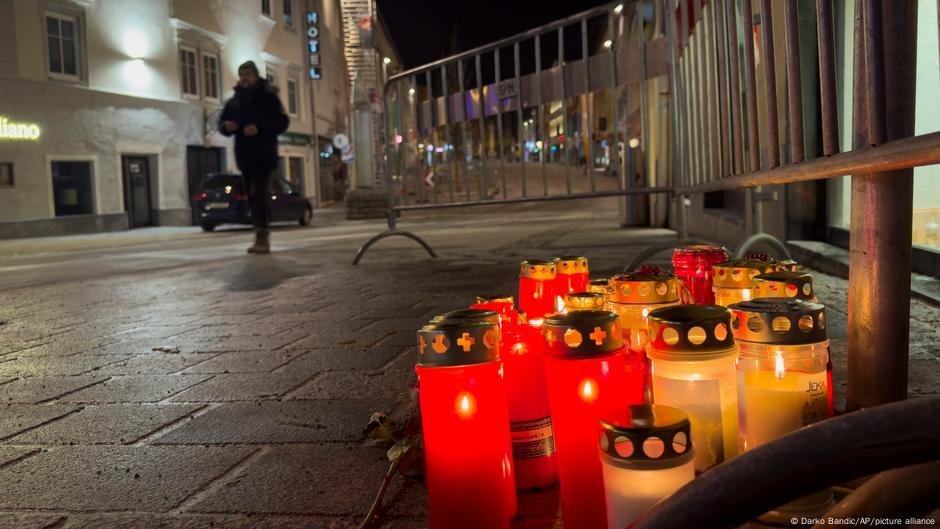Austria’s new government announced that it will halt family reunification procedures for migrants with immediate effect, arguing that the country is not able to take any more newcomers. However, the overall number of arrivals in Austria remains low compared to other EU nations.
Austrian Chancellor Christian Stocker said that the measure to stop family reunification would be temporary, and that the integration of migrants and refugees who already are in the country would be treated as a higher priority for the time being.
"Austria's capacities are limited, and that is why we have decided to prevent further overloading," Stocker told reporters.
The new chancellor added that these measures were required to ensure "the quality of the school system, integration and ultimately the security of all our systems," highlighting that the integration of existing asylum seekers would be treated as a priority.
The proposal still has to pass through parliament, but it is believed that on account of existing majorities this will merely be a formality.
Read AlsoAustria's new coalition takes hard stance on migration
EU emergency clause to be invoked
The Austrian government added it had already informed the EU of these new measures, and that it would be invoking the EU emergency clause, which applies when a member states declares that its internal security might be at risk.
The concrete emergency this might likely be in reference to is the fallout after a deadly knife attack in southern Austria last month, in which a Syrian national killed a teenage boy and wounded several others.
Just days prior to the attack, authorities had arrested a 14-year-old boy on suspicion of planning an attack on a train station in Vienna, saying the suspect was an Islamic State supporter who had allegedly been radicalized online.
However, the government would not comment on how long these emergency measures, and in particular the stop on family reunifications, would likely remain in place.
Read AlsoAustria: Stabbing attack changes narrative on migration, emboldens far-right

Who is affected by this decision?
In practise, these new measures mean that moving forward, migrants with any official protection status in Austria — including asylum — won't be allowed to bring their immediate family members to live with them for as long as the directive remains in force.
In Austria, people whose asylum application is still being processed are not allowed to have family members join them during this time either.
Furthermore, failed asylum seekers who have received a deportation order are equally not allowed to bring family members to unite with them, even if their deportation is unfeasible even in the long-term.
Read AlsoHow Europe's far right is changing EU asylum policy
Low asylum numbers
According to official figures, 7,762 people arrived in Austria in 2024 as part of family reunification procedures. In 2023, that figure stood at 9,254.
Most of these new arrivals were minors, meaning they are in most instances the children of those who are granted protection in Austria.
However, Austria has also rolled out DNA tests for minors coming as part of family reunification procedures, and says it has found instances of fraud.
The total number of asylum requests filed in Austria in 2024 was just shy of 25,000 — considerably lower than many other EU nations both in absolute numbers and in relative proportions, considering that Austria has a population of nine million.
Read AlsoAustria rejects Germany's plan to turn back asylum seekers
Europe's shift to the right
Austria's new government, which consists of a three-way coalition between the People's Party (ÖVP), the Social Democrats (SPÖ) and the liberal New Austria party (NEOS), is treating migration as a key policy issue and has already announced the introduction of stricter asylum rules.
Austria is far from alone from seeker tighter immigration measures, as much of Europe has shifted to the right in the course of a number of successive elections in various countries.
The EU itself has also just introduced new regulations to simplify the deportation of rejected asylum applicants across the bloc, and to keep arrival numbers manageable.
The new regulation also includes a green-lit proposal to create so-called "return hubs" outside of EU territory, where rejected asylum seekers would be taken prior to their ultimate deportation to their home countries.
With this measure, the bloc hopes to ensure that people do not abscond from deportation orders or manage to obtain long-term residency rights, purely by dint of staying in hiding for a long period of time.
Read AlsoAs Europe shifts further right, migrants fear for their futures
with AP
